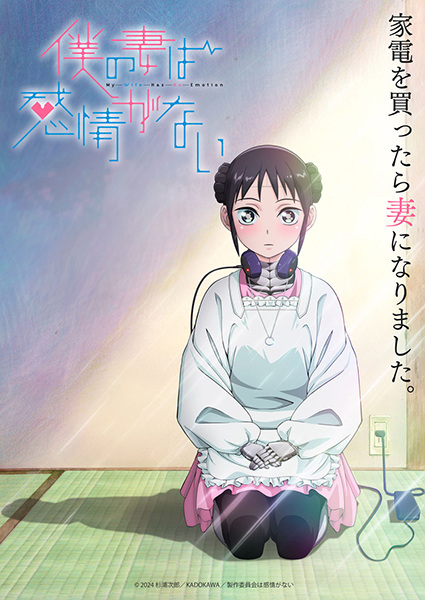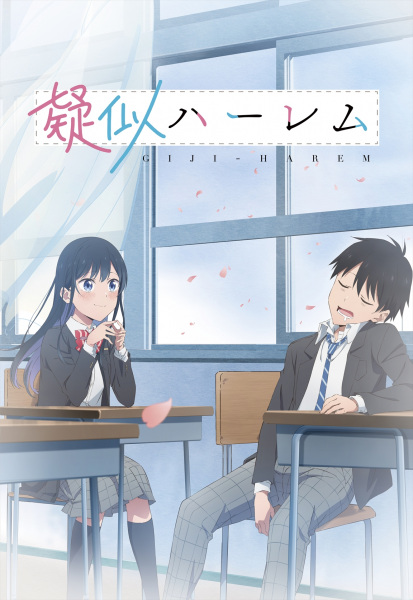Anime fans are set to have a blazing summer in 2024 with loads of exciting releases from most awaited titles. It is a dream that has finally come true for wonder-creating legends as they set to work together to come up with a timeless piece that will surely stand the test of time. The season is also going to elevate many of the adaptations from the so-called worthy manga for inspiration into an actual anime, proving their stories very much alive, with such deep, beautifully illustrated narrative threads, with a strong potential to create world-dominating comes. The collection boasts everything from sweet little stories to some epic journey adventures showcase boundless creativity in the anime industry's run-from-June-to-August 2024 season.
 |
Tokidoki Bosotto Russia-go de Dereru Tonari no Alya-san |
My review: Due to the intermingling of the languages in the anime, a peculiar charm emerges that enriches the articulation of its linguistic interplay and romance for the viewers. At the heart of this charming series is a love story that goes beyond the language barrier; it pulls you into a narrative where interactions between the two protagonists ooze cuteness. Their exterior might seem cold and aloof, but what lies within is real love, making that union adorable and charming at the same time. The juxtaposition makes it all the more funny, especially in scenes when Alya is dishing out in Russian language. These moments provide the much-needed refreshing dialogues and entertainment while chuckling that take you along the show. The clever insertion of words in Russian is a reflection of the creators' attentive spirit, rewarding this narrative with a cultural treat. This kind of magical linguistic blending, along with the romance, makes it really fun to watch and hilarious!
 |
Megami no Café Terrace 2nd Season |
My review: Anime fans wonder what kinds of relationships these new five female characters might have with the male lead. Initially, I was interested in these new female characters, but after a few episodes, I've come to realize that the five new characters are very similar to the originals' five female leads. They are not perfect replicas of the old characters, but they clearly have their own personalities and add to their attention—and also fuel fan speculation about romance possibilities with the main male character.
And as the story progresses, tension is added to the already tangled mess of relationships and emotional distress through the chemistry and interaction of the lead male character with these newly introduced characters. It keeps the audience well engaged since new romance dynamics generate fresh interest and add to the already existing bulk of narrative depth in a show. Bringing in new characters refreshes the anime and makes it easier for anybody to speculate on how these relationships will entangle themselves and in turn affect the story. Keeping the audience invested in developing narratives makes them feel even more attached to the show.
 |
Senpai wa Otokonoko |
My review: A senior with an affinity for cross-dressing becomes the main character, which explores, in its own unique way, an utterly compelling situation. But the story goes beyond just the enjoyment of one man's eccentricities into a more romantic consideration, going further still into deeper philosophical and social realms. It unfetters the classical views of sexuality and identity and makes all of us—the audience included—question our own biases and reason for ourselves. The protagonist's memory of childhood dress-up in girls' clothing opens a window to other differences in human beings and the fallibility of perception. Initial reactions might be apathetic or even disapproving, but really, the narrative conveys understanding and emotional maturity while lightly punching society in the face.
 |
| Isekai Suicide Squad |
My review: I was really amazed when I first got the news about the collaboration between DC and WIT studio. I was just thinking about what kind of project they would create for the fans. Afterward, when I heard they were adding in the Suicide Squad, I felt very positively; but once I heard that an isekai was what they were going for, I felt like the reception might go either way. Since isekai is perceived by most hardcore anime and manga fans as being very dull, to have even an American IP entered into this genre represents an effort to add resolution to that. The Squad roster seemed to suit what they had in mind rather well, but other things—like weak character building and generalized production values across many episodes—could be improved for a more enjoyable experience.
 |
Make Heroine ga Oosugiru! |
My review: The central plot deals entirely with many heroines whose romances have failed, thereby granting victory to Kazuhiko. What remains in question, however, is how each heroines came to lose in their love story. How did an obviously good and deserving woman end up losing to someone perceived as almost subhuman and most definitely unworthy? As I start to dissect the convolutions of this story, a sudden flash of insight hits me—the more I analyze, the more apparent it becomes to me why the heroine of this story, in the matter of love, has had an undeserving ending.
Honorable mention:
 |
Boku no Tsuma wa Kanjou ga Nai
|
My review: My Wife Has No Emotion is a pretty good slice-of-life and has some fun about a rather odd relationship between Takuma Kusakabe, a lonely office worker, and Mina, a household robot he buys. After a slightly drunken, off-hand comment, when Takuma half-jokingly wishes Mina could be his wife, the highly capable robot takes that actually seriously and starts to perform her duties as a wife with earnest dedication. This premise becomes the core of a fine slice-of-life narrative in which the reader tends to observe Takuma's interactions with the robot as well as how much comedy Mina is able to drum up from her literal interpretation of human requests, leaving much space for the slow evolution of Takuma learning to accept and eventually love his robotic partner who is uncharacteristically devoted to him. But overall, wholesome, it's all very sweetly mundane while Mina gazes down upon the whole of domestic life in that straightforward yet caring way.
Over the superficial cuteness and situational humor, beyond the limelight, the story would actually shine in its deepness with how the relationship between the main characters would develop. It has its moments on the maturation of Mina, where one could perceive her actions to go beyond mere technology as she tries to embody Takuma's taste and to an extent tries to process more complicated human feelings even if she has no way of feeling it herself. While on a different perspective, he has learned to master being real for Mina, turning from the conventional view of his appliance to a true companion that takes his loneliness away. The narrative, while maintaining a light feel, asks a few prodding questions regarding companionship, the nature of caring, and the very definition of a substantial relationship, making My Wife Has No Emotion a surprisingly heartwarming and endearing read for fans of sweet character-driven stories with an extra dose of science fiction romance.
 |
[Oshi no Ko] 2nd Season
|
My review: The season launches into a much deeper understanding of the theater journey of Aqua, taking him into the hard and, at times, chaotic world of Japan's performance art scene. Aqua faces a barrage of challenges, such as personal and professional, forcing him to test his might and rally on. The solemn atmosphere returns from the previous season, showing the bitter truths of Japan's performance industry. What is offered in sight and sound in the scenes gives a raw insight into the lives of stage performers, blurring the lines of reality with illusion, emulating the grueling lives of professional actors. At first glance, Aqua's path becomes clouded in darkness, but the story gradually reveals his true passion. He becomes like an eagle soaring high on a single-minded dedication to theater. While this season highlights the dedication and the sacrifices that come with an artistic life, it quite poignantly reminds the audience of the ups and downs that a performer faces.
 |
| Giji Harem |
My review: The animating idea of the whole series says that an archetype can be realized in a single female character having diverse character traits. Hence, the series confronts the stereotypical expectations which might be placed upon the female characters by society, especially the male members, and shows that women cannot be categorized into mere two-dimensional roles. In its story, the anime subtly portrays the complications and multifaceted nature of a woman's existence. It urges its audience not to stop at superficial readings and helps one develop a better understanding of women and the emotional worlds around them.
The anime is indeed a bustling platform in which conflicting and varied ideas about what an ideal woman can be could be explored. The characters rely neither on lame stereotypes nor misconceptions to advance the plot because they are defined largely by strengths, weaknesses, intelligence, and emotionally rich lives. Instead, they would rather promote freedom for women because the audiences are encouraged to learn about and appreciate the breadth of various attributes that such characters might possess. Thus, it endorses the idea of women as multidimensional beings without labeling them as abnormal or psychologically unwell. In this way, anime economically silences societal judgments and stigmas—they are what they really are: nothing more than faint whispers while women who deserve to be heard are amplified.








Comments
Post a Comment